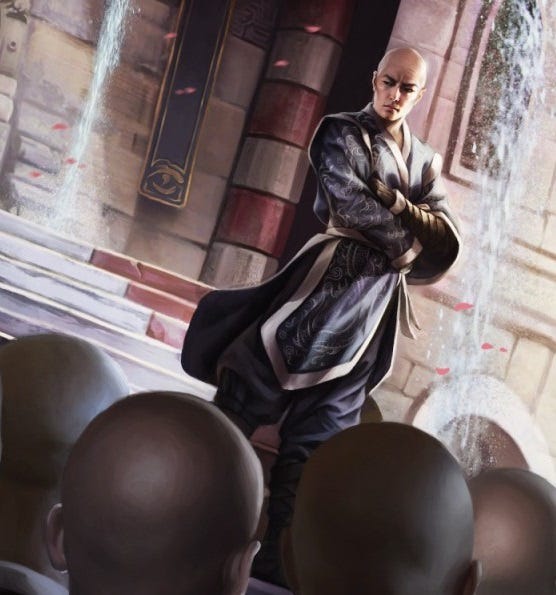Arbaah Banim: Lessons in Hashgachah for the Four Sons
This article aims to answer a basic question on the Arbaah Banim: Why do we use the same pasuk to the rasha (evil son) and the eino yodea li'shol (the son who doesn't know to ask)?
Originally published in April 2012.
Click here for a printer-friendly version of this blog post.
Arbaah Banim: Lessons in Hashgachah for the Four Sons
One of the "classic" questions on the Arbaah Banim (Four Sons) section of the Hagadah is: Why do we use the same pasuk to the rasha (evil son) and the eino yodea li'shol (the son who doesn't know to ask)? The Orchos Chaim [1] offers a bold answer with some interesting implications for chinuch (child education). He writes:
Apparently, the reason [we use the same pasuk] is because it is proper to give the same answer to the rasha and the eino yodea li'shol. The redemption in Egypt was done through miracles that involved changes in nature. Hashem will only changes nature for the sake of the chasidim (eminent individuals) in the generation - either in the merit of their Torah, if they are chachamim (wise individuals), or in the merit of their proper actions and their uprightness, if they walk with Him b'tom levav (wholeheartedly) and are careful in their fulfillment of mitzvos aseh (positive commandments) and in keeping mitzvos lo taaseh (negative commandments). These are the merits of the chacham (wise son) and the tam (wholehearted son).
However, it is well known that the rasha is not worthy [of Divine intervention], nor is the individual who is lax in the actions which he does for the sake of God and who behaves like an animal - namely, the eino yodea li'shol. Without a doubt, such an individual is not on the level where Hashem will change nature on his behalf in order to save him. For this reason, even this individual (i.e. the eino yodea li'shol) falls under the answer of "for the sake of this, Hashem acted on my behalf etc." which means to say, "in my merit, but not in your merit, since you do not contemplate the ways of Hashem and His Torah and His mitzvos."
All of this comes to teach us that a person should tell his son to strengthen his involvement in Torah by day and by night, and to be scrupulous and wholehearted in his observance of mitzvos. Then, and only then, will he be among those for whom Hashem changes nature in order to save them and redeem them.
According to the Orchos Chaim, the overarching lesson of the Arbaah Banim is to teach children the criteria for meriting hashgachah pratis (individual divine providence). According to the Orchos Chaim, there are two categories of merit: (1) involvement in Torah and chochmah, and (2) scrupulous and wholehearted observance of mitzvos. The chacham and the tam possess this merit, and if they had been in Egypt at the time of the redemption, they would have been saved on account of this merit.
The rasha and the eino yodea li'shol lack these types of merit. The eino yodea li'shol is not careful in his observance of mitzvos and lives "like an animal," and the rasha casts off the yoke of mitzvos altogether (see the Orchos Chaim's commentary). Consequently, if they had been in Egypt at the time of the redemption, their merit would be insufficient to warrant hashgachah pratis, and they would not have been redeemed. This is the intent of the response of "for me - but not for him" in the Hagadah. This response is not a snide retort, but is intended as a lesson in how the hashgachah operates.
According to the Orchos Chaim, the Hagadah is urging us to instill these ideas about the hashgachah at an early age, in order to motivate our children in the pursuit of chochmah and the observance of mitzvos. This might be a lo lishmah (extrinsic motive) for being involved in Torah and mitzvos, but lo lishmah is a necessary precursor to lishmah, as Chazal say: "a person should always involve himself in Torah and mitzvos even she'lo lishmah, for from lo lishmah he will come to lishmah." And what better exemplification of hashgachas Hashem in action than Yetzias Mitzrayim!
[1] Rabbeinu Aharon ben Yaakov ha'Kohen, Orchos Chaim: Seder Leil ha'Pesach
If you've gained from what you've learned here, please consider contributing to my Patreon at www.patreon.com/rabbischneeweiss. Alternatively, if you would like to make a direct contribution to the "Rabbi Schneeweiss Torah Content Fund," my Venmo is @Matt-Schneeweiss, and my Zelle and PayPal are mattschneeweiss at gmail.com. Even a small contribution goes a long way to covering the costs of my podcasts, and will provide me with the financial freedom to produce even more Torah content for you.
If you would like to sponsor a day's or a week's worth of content, or if you are interested in enlisting my services as a teacher or tutor, you can reach me at rabbischneeweiss at gmail.com. Thank you to my listeners for listening, thank you to my readers for reading, and thank you to my supporters for supporting my efforts to make Torah ideas available and accessible to everyone.
-----
Substack: rabbischneeweiss.substack.com/
Patreon: patreon.com/rabbischneeweiss
YouTube Channel: youtube.com/rabbischneeweiss
Blog: kolhaseridim.blogspot.com/
"The Stoic Jew" Podcast: thestoicjew.buzzsprout.com
"The Mishlei Podcast": mishlei.buzzsprout.com
"Rambam Bekius" Podcast: rambambekius.buzzsprout.com
"Machshavah Lab" Podcast: machshavahlab.buzzsprout.com
"The Tefilah Podcast": tefilah.buzzsprout.com
WhatsApp Group: https://chat.whatsapp.com/GEB1EPIAarsELfHWuI2k0H
Amazon Wishlist: amazon.com/hz/wishlist/ls/Y72CSP86S24W?ref_=wl_sharel




